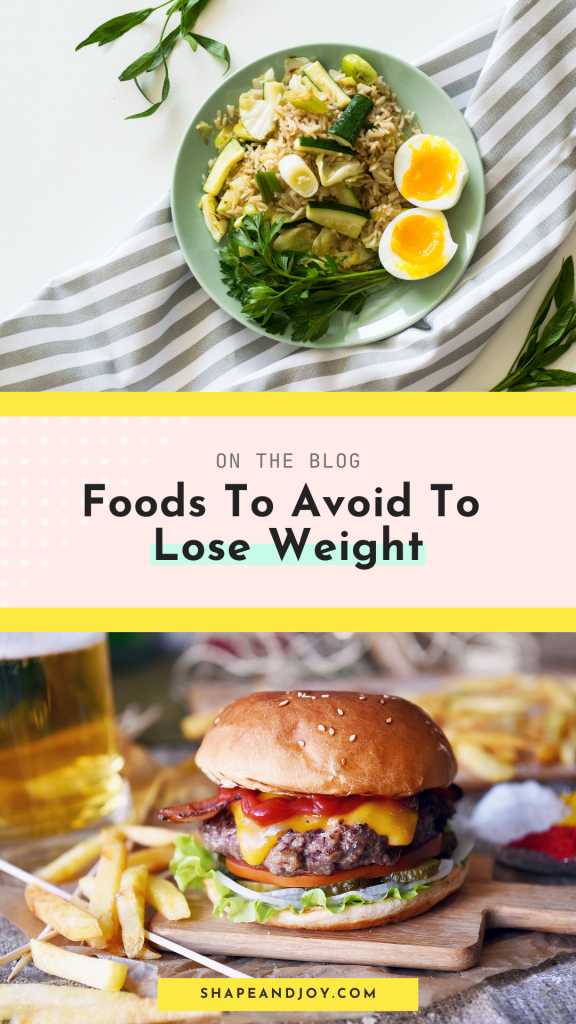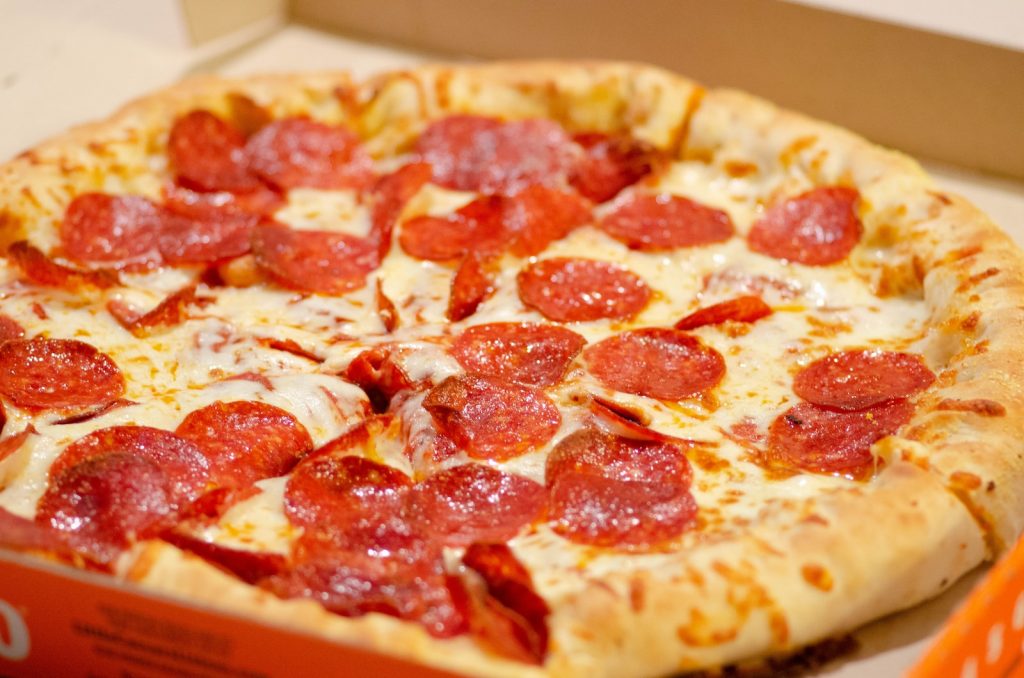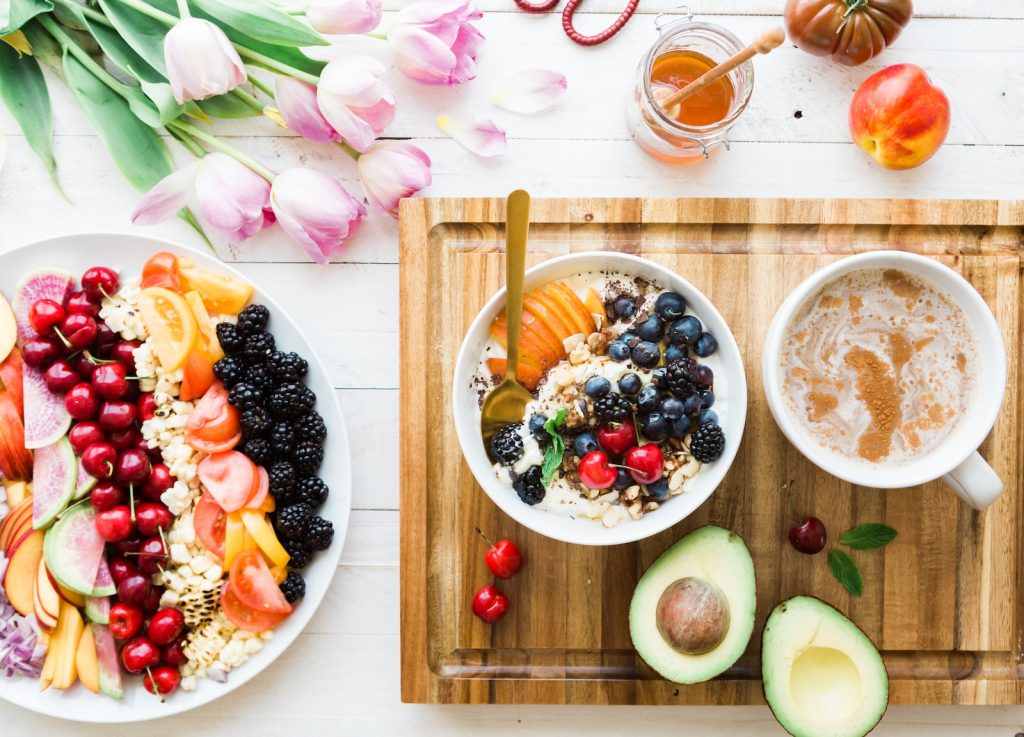This post may contain affiliate links, which means that I may earn a commission if you click on the link or make a purchase using the link. When you make a purchase, the price you pay will be the same whether you use the affiliate link or go directly to the vendor’s website using a non-affiliate link.
Introduction
If you have just started your weight loss journey, you may be wondering what foods to avoid. While there’s no one-size-fits-all approach, it’s important to focus on making mindful choices rather than completely eliminating entire food groups. If you want to lose weight sustainably, balance is the key!

Table of Contents
- Introduction
- Foods To Limit To Lose Weight
- Satiety-Boosting Foods to Fill Up On And Still Lose Weight
- The Balanced Approach
- Conclusion
Foods To Limit To Lose Weight

Ultra-Processed Foods
Ultra-processed foods, loaded with added sugars, unhealthy fats, and preservatives, can contribute to weight gain. Items like sugary snacks, sodas, and fast food are often high in empty calories and low in nutritional value. They are designed to keep you wanting more because scientists have discovered the “bliss point” of these foods to make them hyper-palatable (as tasty as possible!), so in a word, they keep you hooked. Opting for whole, unprocessed foods is a mindful choice that nourishes our bodies and supports a healthy weight.
Instead of focusing only on what to avoid, it helps to know what keeps you fuller for longer. Check out my list of Satiating Foods for ideas.
Refined Carbohydrates
Foods made with refined carbohydrates, like white bread, pastries, and sugary cereals, can cause blood sugar spikes and crashes, leading to increased cravings and overeating. Opting for whole grains and complex carbohydrates provides more sustained energy and better satiety.
Sweetened Drinks
Sugary drinks like sodas, energy drinks, and certain fruit juices can contribute to weight gain without providing a sense of fullness. Choosing water, herbal teas, or infused water with natural flavours can be an easy way to reduce calories with little affect on your hunger.
Trans Fats and Saturated Fats
Foods high in trans fats and saturated fats, like fried foods and some processed snacks, may contribute to weight gain and pose health risks. Opt for healthier fats found in avocados, nuts, and olive oil, which not only support weight loss but also provide essential nutrients.
Rather than avoiding certain foods, why not focus on adding more wholesome options? I share my favourites in Wholesome Foods.
The Downside Of Calorie Counting For Weight Loss
Satiety-Boosting Foods to Fill Up On And Still Lose Weight

High-Fibre Foods
Including fibre-rich foods in your diet, like whole grains, legumes, fruits, and vegetables, promotes a feeling of fullness. Fibre takes longer to digest, keeping you satisfied for longer periods and reducing the likelihood of overeating.
Lean Proteins
Incorporating lean proteins like chicken, fish, tofu, and beans into your meals supports muscle preservation and helps control hunger. Protein-rich foods have a higher thermic effect, so they require more energy to digest, contributing to increased calorie expenditure.
7 Ways To Train Your Mind For Weight Loss
Healthy Fats
Including sources of healthy fats, like avocados, nuts, seeds, and olive oil, can enhance satiety and add a rich flavour to your meals. These fats contribute to a feeling of fullness and provide essential nutrients for overall well-being. You can eat fat and still lose weight!
Complex Carbohydrates
Opt for complex carbohydrates found in whole grains, sweet potatoes, and legumes. These foods release energy slowly, preventing rapid blood sugar spikes and crashes, and keeping you satisfied between meals.
Hydration
Staying hydrated is crucial for weight loss. Sometimes, feelings of hunger are actually signs of dehydration. Drinking water throughout the day can help control appetite and support overall health.
Why The 80/20 Rule Is The Key To Sustainable Weight Loss
The Balanced Approach
Rather than adopting a restrictive mindset, focus on building a balanced plate that includes a variety of nutrient-dense foods. Moderation is key, and incorporating a wide range of flavors and textures can make your weight loss journey more enjoyable and sustainable.
Some foods are harder to resist than others. If you’re curious about the science behind food addiction, I’ve covered it in Can Processed Food Make You Addicted?.
Conclusion
While there are foods that may contribute to weight gain, the key is not to avoid them completely but to be mindful of them. By understanding which foods to limit and increasing those that boost satiety, you can create a sustainable approach to weight loss that focuses on nourishing your body and enjoying a variety of delicious and satisfying foods.
When you want to lose weight, it’s not about deprivation; it’s about making informed choices that support your health and well-being.